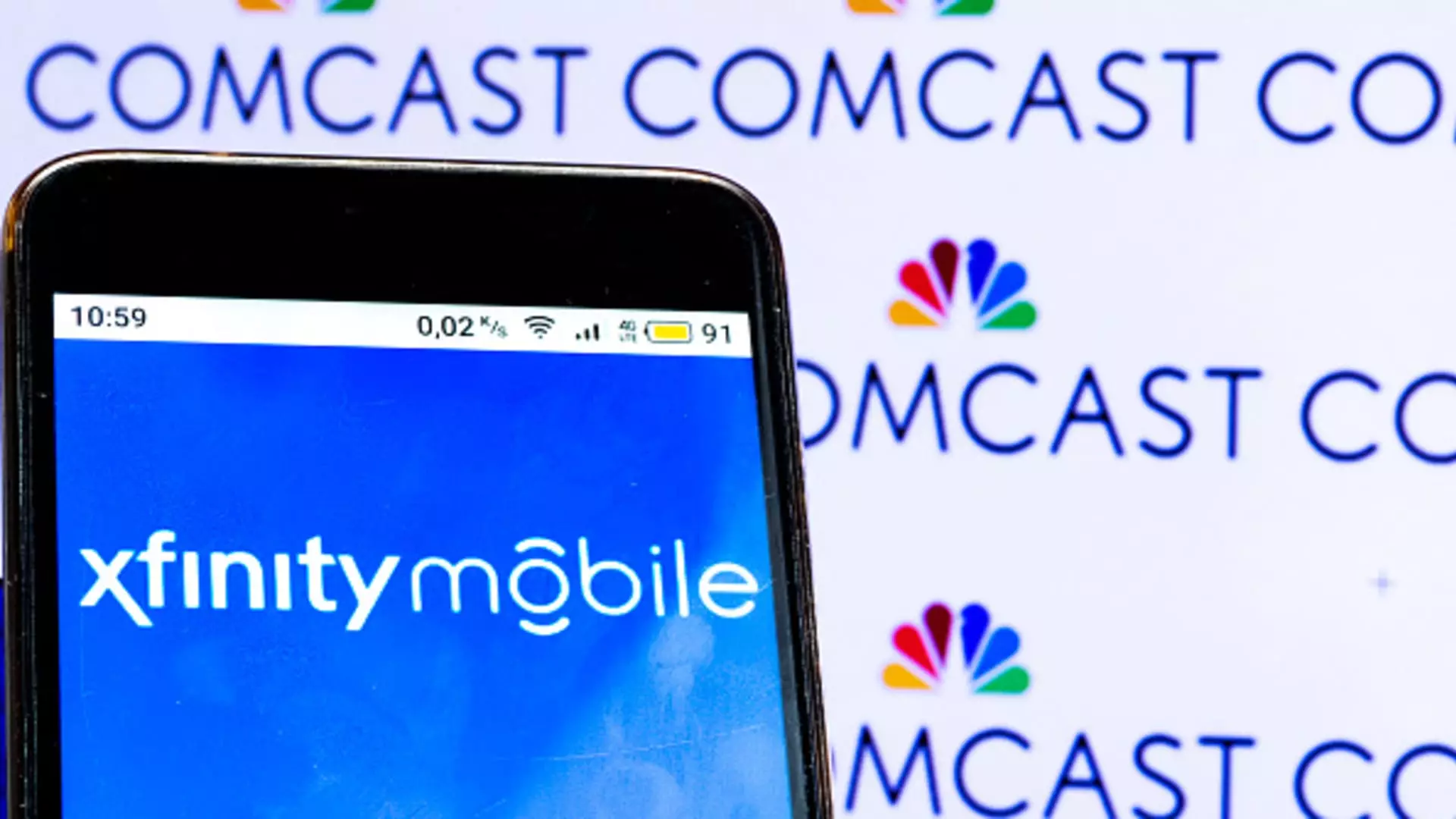Philadelphia is no stranger to its passionate sports culture. From the vibrant atmosphere of Eagles games to the gritty determination of the 76ers, the city thrives on a shared identity steeped in tradition. Now, the newly named Xfinity Mobile Arena – formerly known as Wells Fargo Center – poses intriguing questions about the commodification of our beloved sports venues. The shift away from a bank to a telecommunications giant in the arena’s name suggests not just superficial change, but significant implications for the soul of Philadelphia’s sports experience.
With this rebranding, fans must consider how deeply corporate interests can infiltrate the identity of a community. The vibrant culture surrounding the Wells Fargo Center, where iconic moments and passionate rivalries have unfolded, now feels like it’s giving way to a corporate strategy that prioritizes market share over regional pride. Is this merely a case of commerce overriding community sentiment? Or does it reflect a deeper societal shift where genuine local connections are increasingly sidelined in favor of expansive corporate branding?
Corporate Focus Over Fan Experience
The announcement emphasizes Comcast Spectacor’s direction toward expanding its mobile services, which is undoubtedly a savvy business move. However, the saturation of corporate branding in sports venues raises an uncomfortable question: How much should fans bear the brunt of these commercial aspirations? The push for technology upgrades, including enhanced Wi-Fi via Xfinity Mobile, may attract marginal attention, but it also raises alarm bells.
Not every change in a sports arena is made with fans’ best interests in mind. With the improve-ments in technology, does the fan experience become less about the sport and more about marketing? Upgrading digital services becomes a way to integrate consumers into a corporate ecosystem rather than create shared memories tied to the game of basketball or hockey. When enjoyment rests precariously on the strength of one’s Wi-Fi connection, fans risk losing sight of the electric atmosphere that once drew them to these games.
The Shifting Landscape of Sports Naming Rights
Naming rights have morphed into a significant revenue stream for sports franchises, allowing organizations to thrive financially while leveraging the loyalty of local communities. Yet, the emphasis has been almost exclusively on profit margins, with scant regard for fans beyond transactional engagement. The Xfinity Mobile Arena stands as a testimony to this paradigm shift, where the allure of a lucrative sponsorship can overshadow local legacies.
As an arena featuring two beloved franchises, the decision to use a mobile brand name signals an alarming trend of prioritizing brand identity over the cities that nurture these teams. Will the next generation of sports fans, who are likely to identify more with Comcast than the local teams, dilute the intrinsic connection that has long fueled Philadelphia’s sports passion? It’s a precarious balance, and the Xfinity name may serve as a litmus test for how commercialism can alter the sports landscape.
The Local Fan Dilemma
As with any change that evokes strong emotions, the fans’ response to the rebranding will likely vary widely. Some may see it as an acceptance of modernity, an embrace of evolving technology and corporate partnerships, while others will lament the loss of a storied venue’s name, one that resonated with history and passion.
The essence of Philadelphia sports, the proud identity forged in moments of victory and defeat, feels vulnerable. While an arena’s name may seem a trivial concern to some, this renaming can indicate a larger cultural shift where distinctive identities are consumed by corporate giants. It raises a critical discourse about the ownership of sports culture in an age where the balance is tipping toward profit and away from community legacy.
Will the new Xfinity Mobile Arena become a microcosm of this ongoing struggle in sports branding? The ramifications of this naming change extend beyond mere numbers in corporate balance sheets; the heart of Philadelphia sports may hang in the balance as local franchises navigate their future in a highly-commercialized world.

